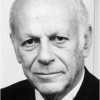Leaderboard
Popular Content
Showing content with the highest reputation on 02/08/2012 in all areas
-
Interesting question indeed... I think "originality" by itself is an overrated concept, esp. in art. In my opinion, originality must go along with coherence and, above all, authenticity. A composer should strive to grow and find a personal voice, but especially to stay true to himself. Say what you really want to say. You might enrich yourself musically by studying a diversity of styles - but without allowing anyone to tell you that you must compose in a given style just "because this is the way it is to be done now (or the way it has been done for the last 300 years)". Just as in any other language, no matter if the words are the same, there is always a new way to say things. There's no point in originality without authenticity - but go for authenticity and your originality will eventually come to light.4 points
-
Well... I can't post in the other thread, but I might as well try my take on this thing... Considering that I compose 'music now' and this music is not exactly 'nice sounding' I can hope that I won't get insulted and thrown to the dumbster! Yes, there's a lot of music that's bad out there! There has always been! The difference with back then and now is that: a. You weren't there back then to hear all the rubbish that did NOT survive time. and b. With todays tools you hear SO MUCH MORE music so you're bound to hit some ugly stuff. That said I will agree that contemporary music has taken a road which sometimes seems autistic! Partly because of academia, partly because avant garde (which is there to promote an idea rather than and partly because of the composers... Take for example the 4th of Feb locked thread! So many young composers in here and not a single person decided to reply to the (aggressive and sightly insulting I'll agree) question by the OP. Nobody decided to bother... Because it IS plain obvious that the music YOU hear has as much to do with YOU as it has to do with the MUSIC! Problem is that if we, the composers, don't do something to change the way that YOU perceive music, then we are doomed to be left behind somehow... And we won't know who to blame exactly! And, yes, I'm in love with what I do and I'm eager to grasp as much audience as possible, without this meaning that I would 'reduce' my art to the level of Biebier! I'm very eager to promote my music, to show my music, to shed a light to my music, to respect my music, and to think that it's great music! To offer it to people and to sell it! To see it getting performed! ___________________________________ That said it's a great generalization to say that the last 75 years music is very very bad... There are some excellent examples of well written and magnificent all round music...2 points
-
(thanks for the intelligent discussion) About the audience: When it comes to the serialist and post-serialism compositions, it can be argued that the music strips the aural sensation that comes with music over the past five millennium. To disqualify an audience who don't want to hear Webern is reprehensible. Most of the paying audience would rather have a V8. Some of my teachers have said,"Chad, you need to add these techniques. ( i.e. indeterminacy, serialism, numerology, etc.)" I say "Humbug to that, I like Rachmaninoff & Brahms and I'm going to keep writing like that. " So am I wrong? That's a whole new discussion. I'm going to the Louisiana Phil concert this week. Why? This what they are playing: Schoenberg: Chamber Symphony No. 1 Sarmientos: Concertino for Marimba Beethoven: Symphony No. 7 If they were playing "Von heute aug morgen", I wouldn't be going. Even in jazz, I am not going to an Ornette Coleman concert. Heck, even some of the eclectic performances of Herbie and Wayne are not my thing. Kenny Garrett? Wycliffe Gordan, Horace Silver, Robin Eubanks? I'm there. I'll end on this. Ravel said this about Schoenberg (in regards to 12-tone) "Non, ce n'est pas de la musique... c'est du laboratoire" (translation: "That isn't music … it's lab-work") "2 points
-
The Finnish composer Mikka Heinio has a better explanation and I like it: "You are not writing in a specific style, but you use several features of this specific style. You are not Neo-romantic composer in general, but you have some features of Neo-romanticism audiable and visible in your music."1 point
-
This is not bad to say, but don't you feel just a little bit satisfied if somebody likes your music? ;)1 point
-
I no longer believe in 100% originality: every composition nowadays is at least in some point eclectic. I think the originality is not so important as it is a artistic power one posesses. It' hard to explain, you simply feel it when you hear it. I am happy though, there are less composers thinking about inventing sounds instead of writing music. I am also a firm believer in not inventing things, but making already invented material into musically accessible art. There were times when somebody invented something, (s)he immediately abandoned this, without searching the available resources of this invention. The audience never really accepted these novelties because there was no time to get used to them.1 point
-
There are advantages and limits to our era. We are free to compose any kind of music but we are pretty much alone in our efforts. There is not only a lack of connection between composers and audience, there is also lack of connection between composers themselves. In our country the composers are only arguing which one should be performed, who's better, etc. We do not support each other enough. Most of our composers don't even go on the concerts where their music is not performed. Another problem is lack of adventure and excitement for exploring less known music. We are pretty much familiar only with Cage, Stockhausen, Boulez and their "fame" for being avantgarde composers. What about others? Jaan Rääts from Estonia, for example wrote a fantastic neoclassical Chamber concerto for strings which is very popular. And what about great operas from Finnish composers. OK, their subject is national so they are probably not interesting for other countries but operas composed by Joonas Kokkonen and Aulis Sallinen are very good. And 5th symphony by Einojuhani Rautavaara is a great masterpiece. Also Clarinet Concerto by Magnus Lindberg or Constelations for strings by Per Norgard... Maybe music from Slovenia would also find more interest abroad if shown enough. It's also the problem of countries they don't have enough national pride to promote their culture. Slovenia is such a sad example. Our neighbours, Croatia, have a huge national pride. Serbians again lack in this, even though they also have some great composers: Vasilije Mokranjac and Dusan Radic (you can find some of their music on youtube). So my response to this is: Music is not bad, if you spend some time to find a good one.1 point
-
I'd have to disagree with you on that. For me personally, I've been exposed to a lot of modern music, especially not that I'm a conservatory student. And while I am by no means an expert, I wouldn't say it is my ignorance that causes me to dislike most modernist/avant garde styles; it's just the simple fact that I don't like them, for various reasons. A few of those reasons; I don't understand them, not from a theory perspective (although that is also true at times) but from a "logical listening" one. The "language" of modern music to me seems like gibberish. While a fan of modern music might say that such and such a piece sound beautiful, to me it is complete randomness, that for me seems to have no sense of logic or direction. I don't think it is my lack of knowledge that makes me dislike modern music, but my experience with it. For the most part, the modern music I've heard sounds like madness. There are exceptions of course, but on the whole it doesn't "click" with me. I think it's a valid point. I don't think people are presuming anything as you say. They listen to the music, and based on what they here make a guess on what could have inspired such music. As I said, for me the music sounds random and illogical, so I wonder whether the composer just wrote down random scribblings. Someone else might find the work to be logical, and I would probably ask them to explain, because truthfully I just simply don't understand a lot of modern music, in the sense that I don't understand how anyone could like that, or want to WRITE like that. I don't mean that offensively, I just mean that it's hard for me to see, or rather hear, the same things that modernist fans hear. A question I want to pose to you: I've never heard anyone say that an early Classical work seems illogical, or random (i.e. Haydn, Mozart, or farther back to Salieri, Vivaldi, etc.). However, we hear it all the time about new works. So is it because we haven't yet become adapted to the newer styles, or is it because the styles themselves are inherently "random"? Personally I would say that it is because modern Classical music, or more precisely the method of writing it, has shifted from putting the listener at the center to the composer. I only mean this somewhat literally; early music was built on a system of consonance over dissonance, tonality, and especially form. All these things are clearly recognizable, even to those who only have a minute knowledge of Classical music. However, newer music TENDS to focus on things that we hardly notice in music, and in some cases are impossible to notice, such as pieces written using a particular mathematical formula. Also, today the idea of "dissonance" among modernists has been obliterated. Everything is treated as a consonance, even such "obvious" dissonances as the m2.1 point
-
Austenite - I see what you're saying, and I wholeheartedly agree with you. In fact, this is the kind of music that almost nobody likes! Music that is intentionally dense and misleading so that nobody can understand it. Fortunately, the vast majority of music is not of this kind. Seriously, I don't know of a single composer who tries to outwit the audience. That just doesn't make sense. I think everybody can agree that abstractism for the sake of being abstract does not automatically qualify music as "good". But that doesn't mean you ignore all other 20th century composers, of whom many write tonally and expressively.1 point
-
I can't and don't rule it out - after all, neither of us would place Beethoven (or Ligeti, for that matter) in the same league as Justin Bieber or Hannah Montana, and there's a reason for that. My point is that, at least in my perception, some composers might feel "entitled" to place burdening demands on their audiences, in order to have a kind of a preventive scapegoat for a failure - like "my work is so original and my language is so abstract, that these lazy listeners aren't intelligent enough to understand it" and pointing out to famous precedents (i.e. Rite of Spring, Bizet's Carmen, Tchaikovksy's Pathetique, most of Beethoven's and Mahler's) to tout their own works as the next "misunderstood failure-turned-landmark masterwork"... I'd answer that it's first and foremost the composers' responsability, at least if their interest is to have their own works appreciated by the present and future audiences.1 point
-
Let me just say no to all this. We appreciate your eclecticism, but if you want your opinion to be taken seriously when you make suggestions for the site, then you'll want to work on presenting your case with some coherence and semblance of underlying sanity. Even if English is not your first language, you clearly know it well enough to be aware that your writing comes off as being produced by someone under the influence of drugs. I have no problems with you treating YC as a sort of RPG playground for this persona, but I'm afraid you need to come back to visit the real world when you're offering suggestions that are intended to be discussed for the benefit of the entire membership. But thank you for the suggestion.1 point





